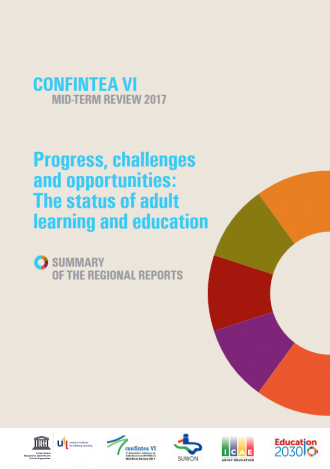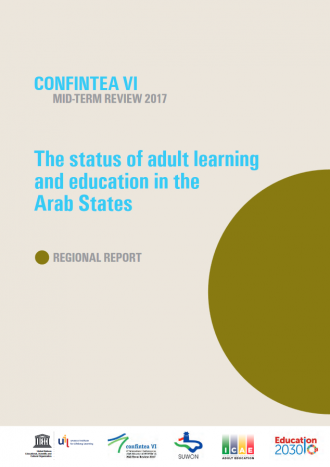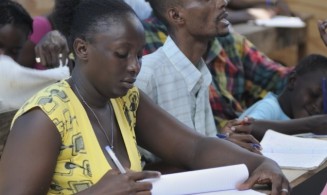Latin America and the Caribbean: Improving the pace
The CONFINTEA VI Mid-Term Review in Suwon, Republic of Korea, in October 2017, took stock of the progress made by Member States over the past eight years, and looked ahead to the fourth Global Report on Adult Learning and Education (GRALE IV), which will be published in 2019. The Latin America and Caribbean regional report, one of five produced for the Mid-Term Review in cooperation with the International Council of Adult Education (ICAE), examines the advancement of adult learning and education (ALE) in the region. It also looks at how key policy agreements and frameworks have contributed to this progress, and provides recommendations in advance of CONFINTEA VII in 2021.
The report uses GRALE III data and other sources to appraise youth and adult learning and education (YALE) in the region, where it is traditionally included as a key component of ALE. It examines how limited access to schooling is linked to structural poverty, unemployment, poor health, social exclusion, migration, violence, and disparities between men and women.
Seen through the lens of the Belém Framework for Action (BFA) and the Sustainable Development Goals, ALE faces challenges with regard to coverage, gender, ethnicity, quality and participation. The report deplores that fulfilment of the right to education is so far not a reality for all adults in the region. It also acknowledges that several countries in the region recognize the importance of developing and investing in ALE, and yet in the English-speaking Caribbean, investment in YALE is often understood as job training for young people.
Low literacy levels among adults and the difficulties of accessing and completing educational processes are linked to patterns of unequal power distribution. ‘Popular education’ pedagogy, with its aim of promoting democratic citizenship and defending human rights, is therefore of special importance in the region.
The report’s recommendations towards further implementation of the BFA in Latin America and the Caribbean focus on enhancing regional and international cooperation, improving the collection and use of data to ensure proper monitoring of YALE policies and programmes, and listening to learners’ voices. As with all of the CONFINTEA VI Mid-Term Review regional reports, it includes a variety of good practice examples in relation to all areas of action identified by the BFA and the 2015 Recommendation on Adult Learning and Education (RALE), i.e., policy; governance; financing; participation, inclusion and equity; and quality.
Download
- Author/Editor: Nélida Elcira Céspedes Rossel; Advocacy Group on Education Policy of the Council of Popular Education of Latin America and the Caribbean (CEAAL)
- CONFINTEA VI Mid-Term Review 2017 - The status of adult learning and education in Latin America and the Caribbean - regional report
- UIL, 2017
- ISBN 978-92-820-1220-8
- Available in: English











